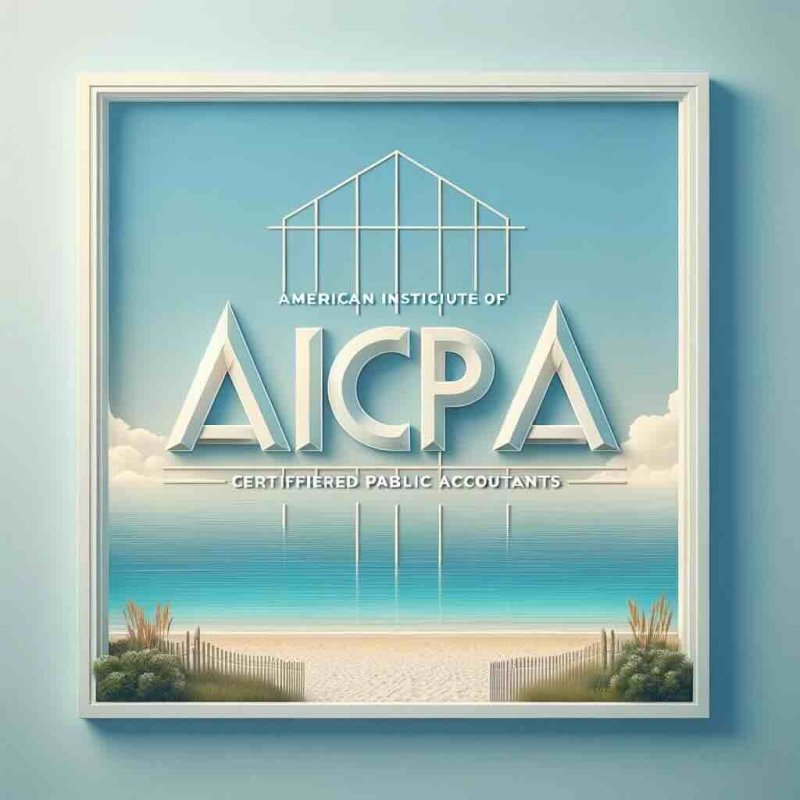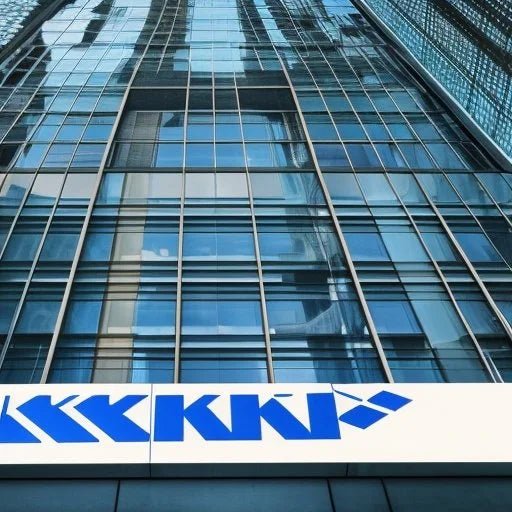CMA full form. A Comprehensive Guide to the Course
CMA full form
Are you interested in becoming a Certified Management Accountant (CMA)? If so, the first step is understanding the CMA's full form, what it entails, and how to pursue it.
This blog article will explore the CMA full form and provide a comprehensive guide to the Certified Management Accountant course. Read on to learn more about this professional credential and how to become a successful CMA.
Topics covered
- CMA Full form
- Benefits of becoming a CMA
- CMA course eligibility
- CMA Course syllabus
- Exam format and registration
- CMA course fees
- Certification process
- ACCA Vs CMA
- CPA Vs CMA
Introduction to the Certified Management Accountant Course
The CMA full form stands for Certified Management Accountant. The Institute of Management Accountants (IMA) offers this professional credential. The CMA is the gold standard for management accounting and financial management. It is a globally recognized designation that distinguishes you from other finance professionals. To become a CMA, you must complete a rigorous course of study and pass a comprehensive exam.
The CMA certification is recognized and accepted in over 100 countries worldwide. It is a highly sought-after credential, and employers value the knowledge and skills that CMAs bring to the table. With the help of the CMA qualification, you can open up a world of career opportunities and potential for advancement in finance.
CMA at a glance
| Category | Statistical Information | Notes |
|---|---|---|
| Global Presence | Over 100,000 candidates | Reflects global interest as of the last available data. |
| Salary Impact | Up to 30% higher | CMAs often earn significantly more than non-certified peers. |
| Growth in Enrollment | Steadily increasing | More professionals are pursuing CMA certification yearly. |
| Exam Pass Rate | Approx. 40-50% | Varies by year and region. Illustrates the exam's rigor. |
| Industry Demand | High in various sectors | Especially in finance, manufacturing, health care, and technology. |
| IMA Membership Growth | Positive growth trend | Reflects growing interest in management accounting. |
| Professional Advantage | Valued in strategic roles | CMAs are sought for financial planning and analysis roles. |
| Continuing Education | Required for certification upkeep | Ensures CMAs stay current in their field. |
What is the CMA Full Form?
As mentioned above, the CMA full form stands for Certified Management Accountant. The CMA is a professional credential offered by the Institute of Management Accountants. It is designed to equip you with the necessary skills and knowledge to succeed in the finance field.
The CMA curriculum covers a broad range of financial management and accounting topics, including strategic planning, budgeting and forecasting, financial analysis and reporting, taxation, and corporate governance. Upon completing the course, you will have the skills and knowledge needed to succeed as a Certified Management Accountant.
Benefits of Becoming a Certified Management Accountant
There are numerous benefits to becoming a Certified Management Accountant.
Education Benefits
One of the main benefits of becoming a CMA US member is access to educational resources, including webinars, online courses, and live events. These resources allow members to stay up-to-date on the latest management accounting and finance developments. For example, members can attend lectures given by expert faculty or even participate in hands-on workshops that allow them to develop their skills in financial analysis and problem-solving.
Networking Opportunities
Another key benefit of being a CMA US member is networking with other professionals. Members have access to an online platform where they can connect with other certified accountants worldwide. Members can share best practices, ask questions about specific topics, or find career opportunities in different industries or countries through this platform. Additionally, several annual conferences are available for CMA US members that allow them to meet face-to-face with potential employers or colleagues from different parts of the world.
Career Advancement Opportunities
Finally, becoming a CMA US member gives you access to exclusive job postings and recruitment events that are only available to certified accountants. In addition, many large companies offer additional bonuses and incentives for hiring CMAs over non-certified candidates due to their financial analysis and reporting expertise.
Becoming a CMA gives you an advantage over other applicants who do not have this certification when it comes time for promotions from your CFO or raises within your current company and when searching for new jobs elsewhere.
CMA Course Eligibility
Before you can pursue the CMA course, there are several prerequisites that you must meet.
- First and foremost, you must have a bachelor's degree in accounting, finance, or a related field. This can be from any accredited institution.
- In addition, you must have at least two years of experience in a professional finance or accounting role. This can be in any field, including public accounting, corporate finance, government, or nonprofit.
- You must also have the necessary time and resources to study for the CMA exam. This includes a significant amount of time for studying, reviewing material, and taking practice tests.
CMA Course Details and Structure
Candidates pursuing the Certified Management Accountant (CMA) certification must adhere to an established examination protocol comprising two parts:
CMA subjects
Part 1 - Financial Planning, Performance, and Analytics (4 hours – 100 questions and two essay questions).
The CMA subjects covered and their weightage is given as under:
- External Financial Reporting Decisions 15%
- Planning, Budgeting, and Forecasting 20%
- Performance Management 20%
- Cost Management 15%
- Internal Controls 15%
- Technology and Analytics 15%
Part 2 - Strategic Financial Management (4 hours – 100 questions and two essay questions)
The CMA subjects covered and their weightage is given as under:
- Financial Statement Analysis 20%
- Corporate Finance 20%
- Decision Analysis 25%
- Risk Management 10%
- Investment Decisions 10%
- Professional Ethics 15%
Additional information
- You have three years from the time of registration to complete the two parts.
- Passing this exam requires a score of at least 360 out of 500. Aim high, and you may be pleasantly surprised!
- CMA Duration ranges between 2-3 years, depending on how you self-paced and passed the exams.
CMA Exam Format and Registration
Once you have completed the course, you are ready to take the CMA exam.
- The CMA Examination is a globally-administered assessment delivered electronically and held at Prometric Testing Centers around the world. To find your local centre, visit Prometric's website for an updated list of locations.
- Test-takers have three chances a year to complete Parts 1 and 2 of their exam with the January/February, May/June or September/October testing windows.
- Students must register before the 15th day in those respective months to secure their slot for taking both parts.
- To register for the CMA exam, you must create an online profile with the Institute of Management Accountants. Once you have done this, you can log in to the website and register for the exam. During the registration process, you will need to provide information such as your contact details, the exam date, and payment information.
- Chinese-speaking individuals looking to become Chartered Management Accountants now have the option of sitting for their exams in a format that best suits them. The examinations can be taken either on paper/pencil in Mandarin or via a computerized platform using English.
Once you have completed the registration process, you will receive a confirmation email with all the necessary details. It is essential to keep this information safe, as it will be needed when you are ready to take the exam.
CEO full form. Roles, Responsibilities, Digital Age CEO.
Preparing for the CMA Exam
Once you have registered for the exam, it is time to begin preparing. The best way to prepare for the CMA exam is to develop a study plan and stick to it. This plan should include studying the material from the course, taking practice tests, and reviewing any material you may need to refresh your memory.
The Institute of Management Accountants also offers a variety of study materials, including books, webinars, and online courses. These can be extremely helpful in preparing for the exam. It is also important to remember to take breaks and get plenty of rest during your studying.
CMA Course fees
The CMA exam is conducted by the Institute of Management Accountants (IMA) and is a two-part exam consisting of two four-hour segments.
For Professional Members:
- CMA Entrance Fee (nonrefundable) - $280*
- Exam Fee - $460 per part.
For Student/Academic Members:
- CMA Entrance Fee (nonrefundable) - $210*
- Exam Fee - $345 per part.
- *IMA membership is additional and also required.
The cost of the CMA exam does not include the cost of the CMA review materials.
The CMA review materials are essential for applicants wishing to pass the exam, and they are available in both physical and digital formats. The cost of the materials depends on the format chosen.
Getting to the Bottom of KYC: What It Stands For, Its Benefits, Uses, and Legality
CMA Certification Process
The CMA certification process consists of a rigorous series of tests, which includes the CMA exam, a professional experience requirement, and an ethics exam.
The CMA exam is the first step in the CMA certification process. The exam consists of two four-hour segments and covers a range of topics related to financial and managerial accounting. The exam is designed to test the applicant's knowledge of the principles of management accounting, as well as their ability to apply those principles in a variety of business situations.
The professional experience requirement is the second step in the CMA certification process. Applicants must have at least two years of professional experience in the field of management accounting in order to be eligible for the CMA certification. The two years of experience must be within the five years prior to the date of application for the CMA certification.
The ethics exam is the final step in the CMA certification process. This exam tests the applicant's knowledge of the ethical principles of the profession and their ability to apply those principles in a variety of situations.
Applying for the CMA
Once you have completed the exam, you can apply for the CMA credential. You must log in to the Institute of Management Accountants website and submit your application. During the application process, you will need to provide information such as your contact details, exam scores, and other relevant information.
Once your application is approved, you will receive a welcome email with your CMA certificate and registration number. This number must be included in all correspondence related to your CMA credential.
Continuing Professional Education Requirements
Once you have earned the CMA credential, staying up to date on the latest developments in the field is essential. You must complete 40 hours of Continuing Professional Education (CPE) credits every three years.
These credits must come from IMA-approved courses and can include webinars, seminars, and other educational activities.
It is essential to maintain your CPE credits, as they are necessary to keep your credential in good standing. Failing to do so may result in your credential being revoked.
Guide To Crafting A Leave Application For Office. Formats & samples
CMA vs ACCA
The CMA and the ACCA (Association of Chartered Certified Accountants) are two of the most popular accounting certifications in the world. While both certifications are highly sought after, they do have some distinct differences.
- The CMA certification focuses on the principles of management accounting, while the ACCA certification focuses on the principles of financial accounting.
- The CMA requires applicants to have two years of professional experience in the field of management accounting, while the ACCA requires three years of practical experience.
- The CMA exam is also a two-part exam, while the ACCA exam is a three-level exam.
- The CMA certification is specifically designed to meet the needs of financial managers working in the public and nonprofit sectors, while the ACCA course is more geared towards accounting and auditing professionals working in the private sector.
So depending on your career goals, one or the other of these certifications may be a better fit for you. But either way, you can be assured that both CMA and ACCA will give you a strong foundation in financial management and accounting principles.
CPA vs CMA
It is important to note that while there are some similarities between being a certified public accountant (CPA) and a certified management accountant (CMA), they are not interchangeable certifications.
A CPA license generally allows one to practice public accounting or provide tax services; however, this is not true for CMAs.
A CMA focuses on management accounting instead of public accounting; thus, CMAs are responsible for providing strategic advice on business operations rather than focusing solely on taxes or auditing financial statements like CPAs do.
Additionally, CMAs must possess extensive knowledge about cost management systems and risk management processes within organizations which CPAs do not need to know about.
Also read ACCA DIPIFR vs AICPA IFRS, which is better choice
Conclusion
We hope this blog article has helped you to understand the CMA's complete form and the process of becoming a Certified Management Accountant. Becoming a CMA is a great way to set yourself apart from other finance professionals and open up career opportunities. You can reach your goal of becoming a successful CMA with dedication and hard work.
If you have any further questions about the CMA or the process of becoming a Certified Management Accountant, please don't hesitate to contact us. We are here to answer any questions and provide support and guidance throughout the process.
Good luck with your pursuit of the CMA course!
From the blog
View allFAQs
Take the first step towards your CMA certification and visit imanet.org/cma-certification to apply - it's quick and easy!
Purchase the required entrance fee and IMA membership; then, you'll be able to register for Part 1 or 2 of the exam in any order – or both at once!
There are additional steps needed before being fully certified, such as submitting education transcripts and providing proof of work experience – although this can all be done while studying if preferred.
With just a few clicks, you could soon have an internationally recognized professional qualification on your resume, so get started today!
IMA® is a highly esteemed association committed to propelling the management accounting profession.
With over 100,000 members, we offer invaluable access to our CMA program so you can take your career and organization up a notch through professional growth. Join us in pushing the boundaries of success!
The average pass rate for the CMA varies by geographic region but is typically around 50% on both parts one and two of the exam.
CMA aspirants have three years to successfully complete both components of the exam from the day they join their program. With ample time available, success is well within reach!
A diverse range of backgrounds, from engineering to economics and business administration forms the ideal skill set our candidates need. An accounting background can certainly be beneficial; however, it is not necessary for success in this position.












Leave a comment